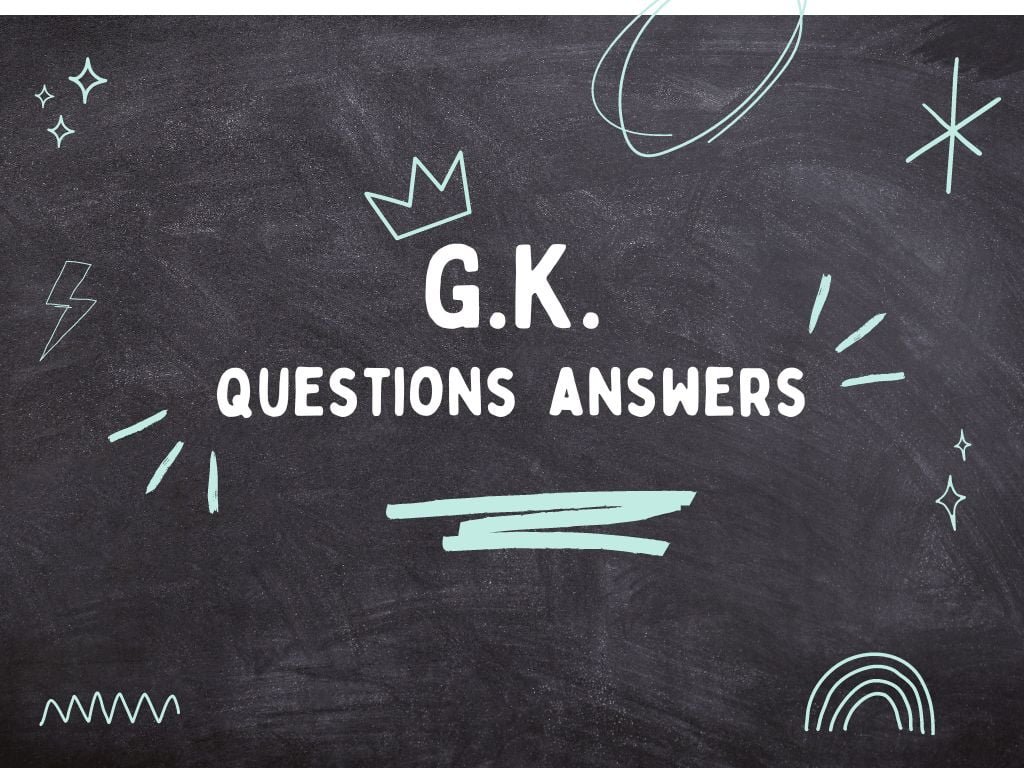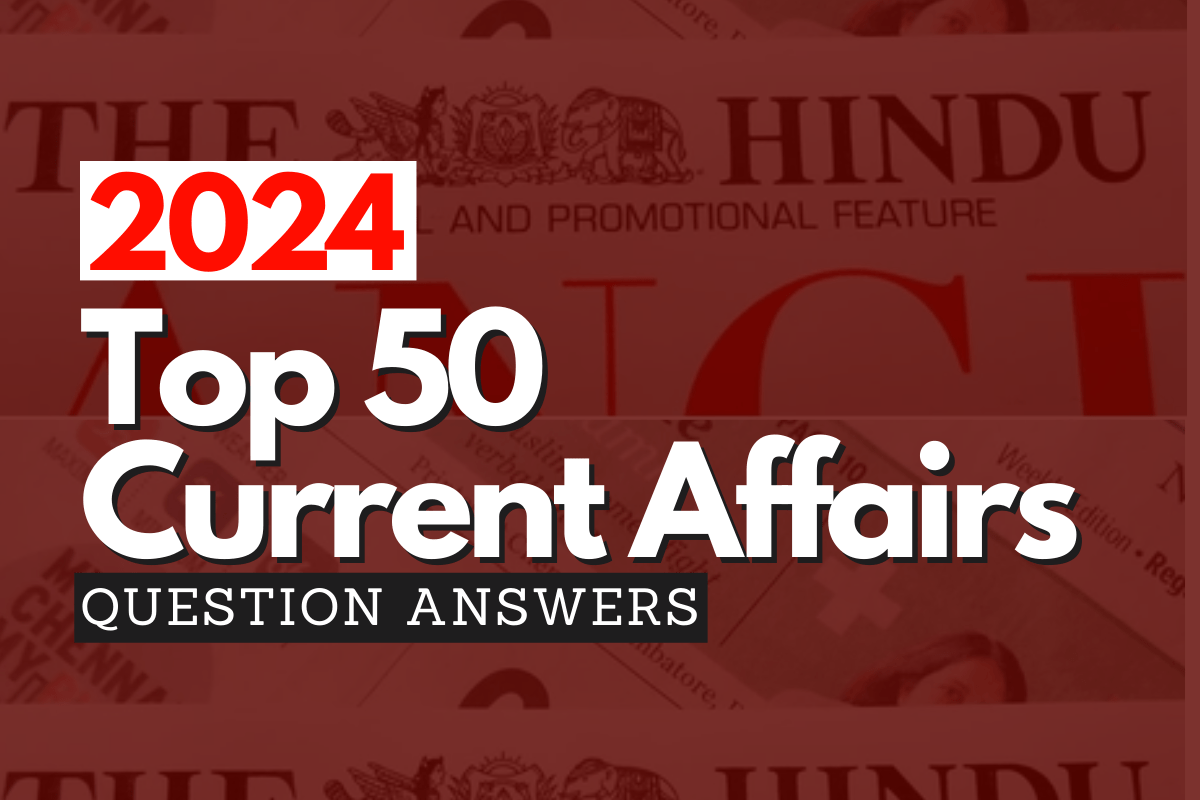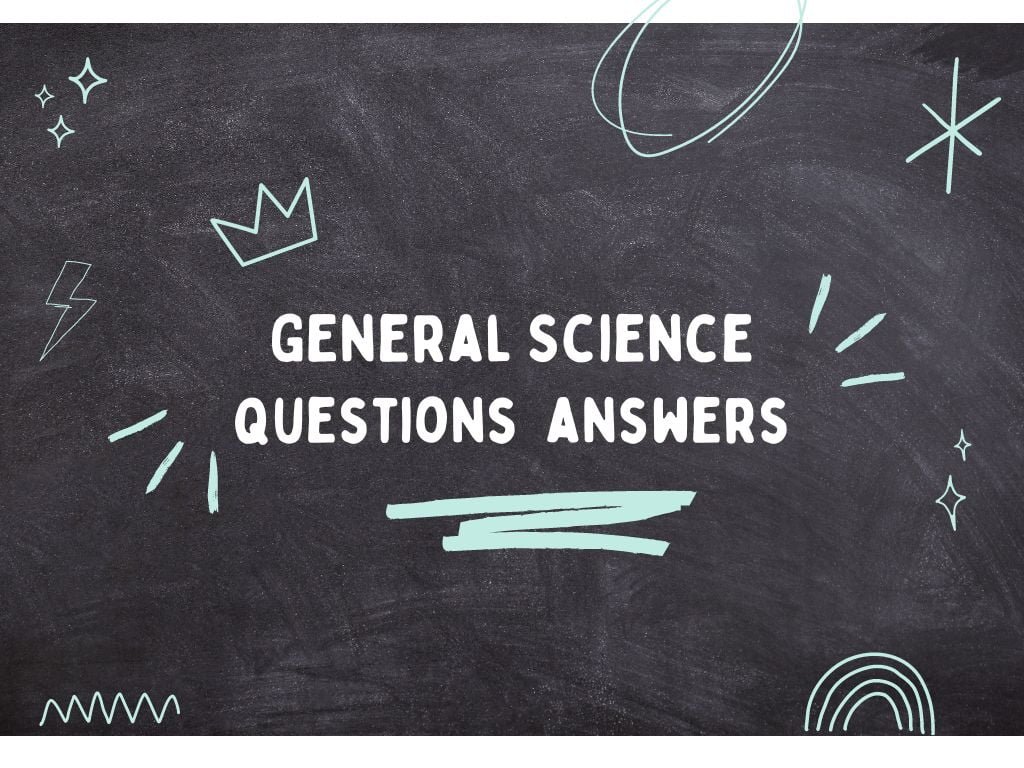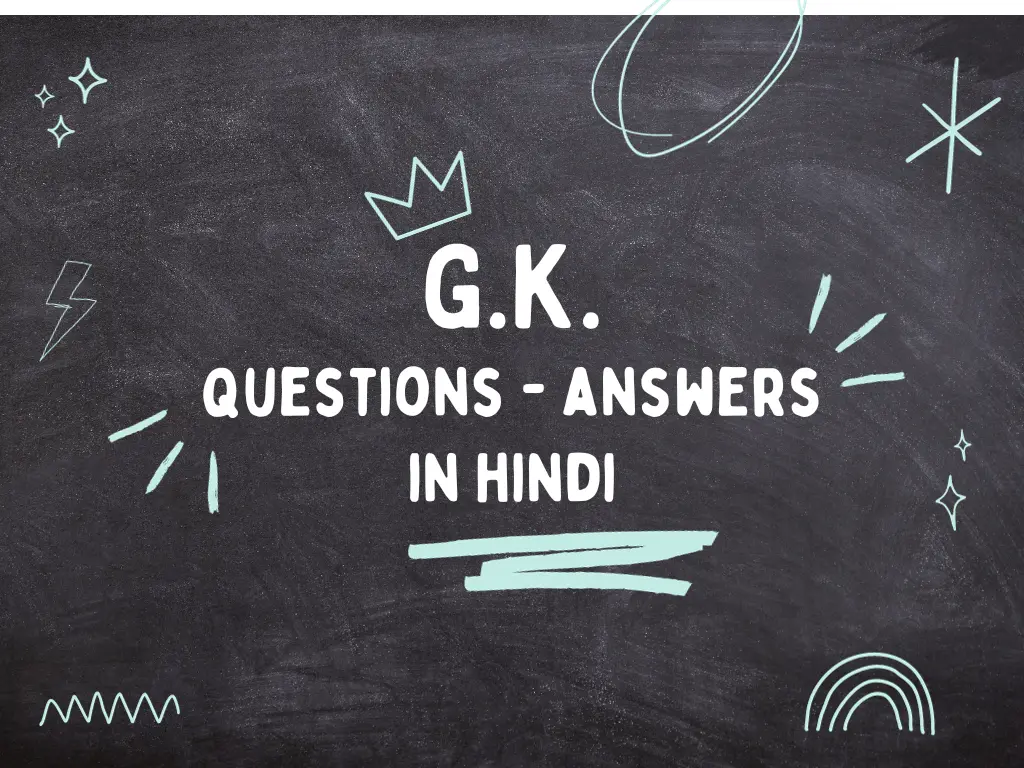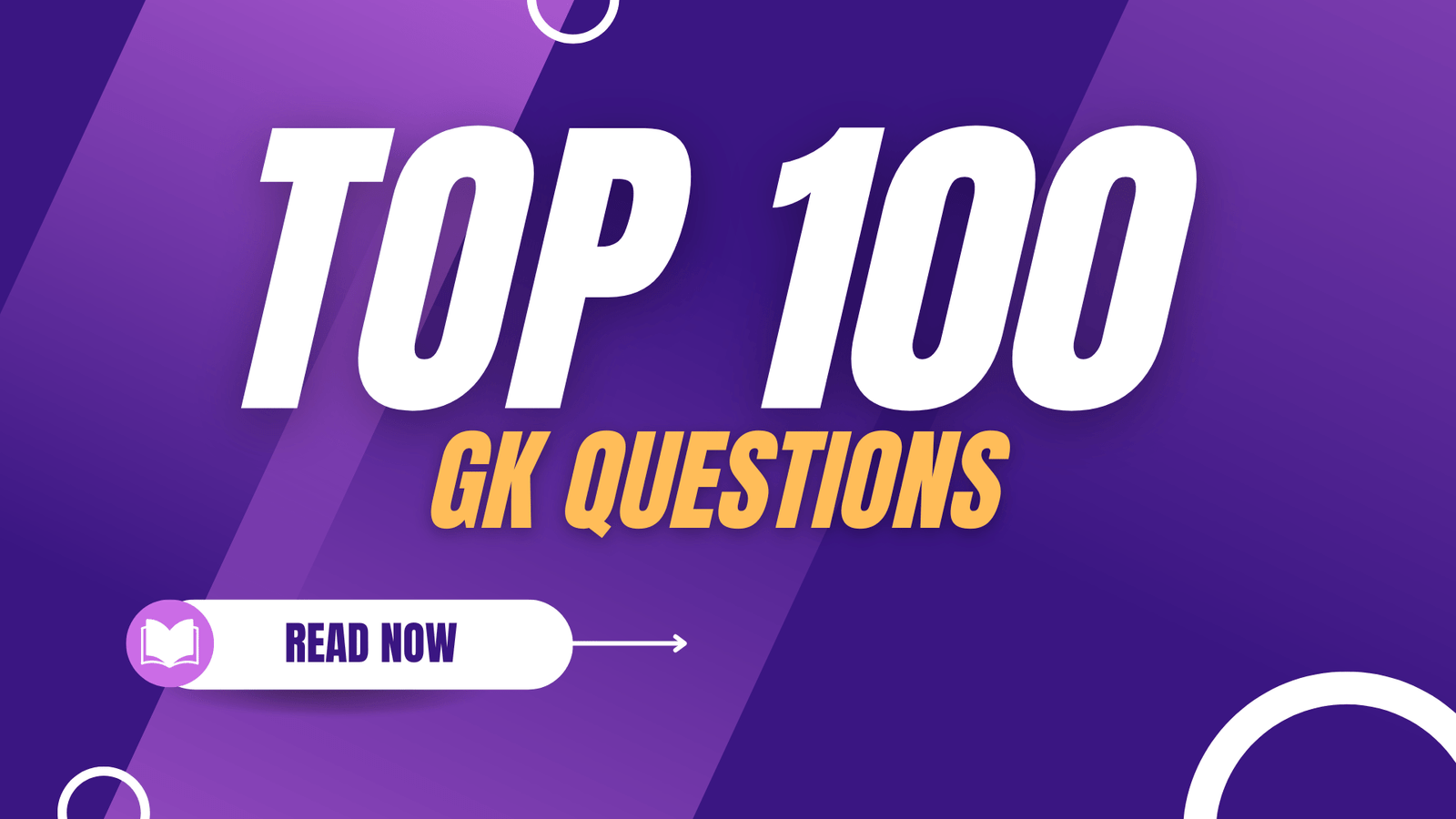Explore a diverse range of general knowledge questions and their answers on various topics such as history, science, geography, literature, and more. Test your knowledge and learn fascinating facts about the world around us, from famous artworks and historical events to iconic landmarks and renowned authors. Whether you’re preparing for a quiz, expanding your knowledge base, or simply curious about the world, these insightful questions and concise answers provide an engaging opportunity to delve into the realm of general knowledge.
What is the capital city of France?
The capital city of France is Paris. Known for its iconic landmarks such as the Eiffel Tower, Notre-Dame Cathedral, and Louvre Museum, Paris is renowned for its rich history, culture, and artistic heritage.
Who wrote the famous play “Romeo and Juliet”?
The famous play “Romeo and Juliet” was written by William Shakespeare. This tragic love story has captivated audiences for centuries with its timeless themes of love, fate, and family rivalry.
What is the chemical symbol for water?
The chemical symbol for water is H2O. This signifies that a water molecule is composed of two hydrogen atoms and one oxygen atom, forming a fundamental compound essential for life on Earth.
In which year did the Titanic sink?
The Titanic sank on April 15, 1912. The tragic sinking of this “unsinkable” ship resulted in the loss of over 1,500 lives and remains one of the most infamous maritime disasters in history.
What is the tallest mountain in the world?
The tallest mountain in the world is Mount Everest. Located in the Himalayas on the border between Nepal and China, Mount Everest stands at an impressive height of 8,848.86 meters (29,031.7 feet) above sea level.
Who painted the Mona Lisa?
The Mona Lisa was painted by the renowned Italian artist Leonardo da Vinci. This iconic portrait, created during the Italian Renaissance in the early 16th century, is famous for its enigmatic smile and meticulous detail.
What is the currency of Japan?
The currency of Japan is the Japanese yen (¥). It is abbreviated as JPY and is used as the official currency for financial transactions in Japan.
Who is known as the father of modern physics?
Albert Einstein is often referred to as the father of modern physics. His groundbreaking theories of relativity revolutionized our understanding of space, time, and gravity, earning him the Nobel Prize in Physics in 1921.
How many continents are there in the world?
There are seven continents in the world: Africa, Antarctica, Asia, Europe, North America, South America, and Australia. Each continent has its own unique geography, culture, and biodiversity.
What is the chemical formula for table salt?
The chemical formula for table salt is NaCl. This indicates that table salt, also known as sodium chloride, is composed of sodium (Na) and chlorine (Cl) ions bonded together in a 1:1 ratio.
Which planet is known as the Red Planet?
Mars is known as the Red Planet due to its reddish appearance, caused by iron oxide (rust) on its surface. It is the fourth planet from the Sun in the solar system and has been a subject of fascination for astronomers and space enthusiasts alike.
Who invented the telephone?
The telephone was invented by Alexander Graham Bell. Bell, a Scottish-born inventor, is credited with inventing the first practical telephone and making the first successful telephone call to his assistant, Thomas Watson, on March 10, 1876.
What is the largest mammal in the world?
The largest mammal in the world is the blue whale. Blue whales are the largest animals ever known to have lived on Earth, reaching lengths of up to 100 feet (30 meters) and weighing as much as 200 tons.
What is the capital city of Australia?
The capital city of Australia is Canberra. Located in the Australian Capital Territory, Canberra serves as the political and administrative center of the country, housing important government institutions such as Parliament House and the High Court of Australia.
Who wrote the novel “To Kill a Mockingbird”?
The novel “To Kill a Mockingbird” was written by Harper Lee. Published in 1960, this Pulitzer Prize-winning novel explores themes of racial injustice, moral growth, and empathy through the eyes of its young protagonist, Scout Finch.
Who is credited with discovering penicillin?
Penicillin was discovered by Scottish bacteriologist Alexander Fleming in 1928. Fleming’s accidental discovery of the antibiotic properties of the Penicillium mold revolutionized medicine and paved the way for the development of modern antibiotics.
Which country is famous for the ancient ruins of Machu Picchu?
Machu Picchu, an ancient Inca citadel located in the Andes Mountains, is situated in Peru. This UNESCO World Heritage Site is renowned for its stunning architecture, breathtaking mountain scenery, and rich cultural significance.
What is the longest river in the world?
The longest river in the world is the Nile River. Stretching approximately 6,650 kilometers (4,130 miles) in length, the Nile flows through northeastern Africa, traversing multiple countries including Egypt, Sudan, South Sudan, and Ethiopia.
Who is the author of the Harry Potter book series?
The Harry Potter book series was written by British author J.K. Rowling. This immensely popular fantasy series follows the adventures of a young wizard, Harry Potter, and his friends as they attend Hogwarts School of Witchcraft and Wizardry and battle against the dark wizard Voldemort.
What is the capital city of Brazil?
The capital city of Brazil is Brasília. Located in the central-western region of the country, Brasília was constructed in the 1950s to serve as the new capital, replacing Rio de Janeiro. It is known for its modernist architecture and urban planning, designed by architect Oscar Niemeyer and urban planner Lúcio Costa.
Which gas makes up the majority of Earth’s atmosphere?
The gas that makes up the majority of Earth’s atmosphere is nitrogen. Nitrogen accounts for approximately 78% of the Earth’s atmosphere, followed by oxygen at around 21%.
Who painted the famous artwork “Starry Night”?
The famous artwork “Starry Night” was painted by the Dutch post-impressionist artist Vincent van Gogh. Created in 1889, this iconic painting depicts the night sky over the village of Saint-Rémy-de-Provence in France.
What is the largest ocean on Earth?
The largest ocean on Earth is the Pacific Ocean. Covering approximately 63 million square miles (165 million square kilometers), the Pacific Ocean spans from the Arctic Ocean in the north to the Southern Ocean in the south.
Who is the current President of the United States?
As of [current year], the current President of the United States is [current President’s name]. (Please note that the specific name would depend on the current year.)
What is the chemical symbol for gold?
The chemical symbol for gold is Au, which comes from the Latin word “aurum.”
Which planet is known as the “Morning Star” or “Evening Star”?
Venus is often referred to as the “Morning Star” when it appears in the eastern sky before sunrise and the “Evening Star” when it is visible in the western sky after sunset.
What is the currency of the United Kingdom?
The currency of the United Kingdom is the British Pound Sterling (£), often abbreviated as GBP.
Who wrote the famous novel “1984”?
The famous novel “1984” was written by English author George Orwell. Published in 1949, this dystopian novel explores themes of totalitarianism, surveillance, and government control.
What is the tallest animal in the world?
The tallest animal in the world is the giraffe. These majestic creatures can reach heights of up to 18 feet (5.5 meters) tall.
What is the capital city of Russia?
The capital city of Russia is Moscow. As the largest city in Russia, Moscow serves as the political, economic, and cultural center of the country.
Who is credited with the theory of evolution by natural selection?
The theory of evolution by natural selection is credited to Charles Darwin, an English naturalist and biologist. Darwin proposed this groundbreaking theory in his seminal work “On the Origin of Species,” published in 1859.
What is the main ingredient in guacamole?
The main ingredient in guacamole is avocado. Guacamole is a popular Mexican dip made by mashing ripe avocados and mixing them with lime juice, salt, diced onions, tomatoes, and other optional ingredients.
Which famous scientist formulated the theory of relativity?
The theory of relativity was formulated by Albert Einstein, a German-born theoretical physicist. Einstein’s theories of special relativity and general relativity revolutionized our understanding of space, time, and gravity.
What is the capital city of China?
The capital city of China is Beijing. As the political and cultural center of the country, Beijing is home to many historical landmarks, including the Forbidden City, Tiananmen Square, and the Great Wall of China.
Who is the author of the classic novel “Pride and Prejudice”?
The classic novel “Pride and Prejudice” was written by English author Jane Austen. Published in 1813, this beloved novel explores themes of love, marriage, and social class in early 19th-century England.
What is the largest desert in the world?
The largest desert in the world is the Antarctic Desert. Despite its icy landscape, the Antarctic Desert meets the criteria for classification as a desert due to its low precipitation levels.
Which element has the chemical symbol “Fe”?
The element with the chemical symbol “Fe” is iron. Iron is a metallic chemical element and is one of the most abundant elements on Earth’s crust.
Who painted the famous artwork “The Scream”?
The famous artwork “The Scream” was painted by Norwegian artist Edvard Munch. Created in 1893, this iconic painting is known for its haunting depiction of a figure in distress against a swirling sky.
What is the smallest bone in the human body?
The smallest bone in the human body is the stapes, also known as the stirrup bone. Located in the middle ear, the stapes plays a crucial role in transmitting sound vibrations to the inner ear.
What is the capital city of India?
The capital city of India is New Delhi. As the political and administrative center of the country, New Delhi is home to key government institutions, including the Parliament of India and the President’s official residence, Rashtrapati Bhavan.
Which planet is known as the “Red Planet”?
Mars is known as the “Red Planet” due to its reddish appearance caused by iron oxide (rust) on its surface. It is the fourth planet from the Sun in the solar system.
Who is the author of the “Harry Potter” book series?
The “Harry Potter” book series was written by British author J.K. Rowling. The series follows the adventures of a young wizard named Harry Potter and his friends at Hogwarts School of Witchcraft and Wizardry.
What is the chemical symbol for sodium?
The chemical symbol for sodium is Na. Sodium is a chemical element with atomic number 11 and is commonly found in salt and various compounds.
Which country is known as the “Land of the Rising Sun”?
Japan is known as the “Land of the Rising Sun.” This nickname refers to the country’s name in Japanese, which translates to “Nihon” or “Nippon,” meaning “origin of the sun.”
Who painted the famous artwork “The Last Supper”?
“The Last Supper” was painted by Italian artist Leonardo da Vinci. This iconic mural depicts the last meal Jesus shared with his disciples before his crucifixion and is located in the Convent of Santa Maria delle Grazie in Milan, Italy.
What is the chemical symbol for carbon dioxide?
The chemical symbol for carbon dioxide is CO2. Carbon dioxide is a colorless, odorless gas composed of one carbon atom and two oxygen atoms.
Which gas is responsible for the Earth’s protective ozone layer?
Ozone (O3) is responsible for the Earth’s protective ozone layer. The ozone layer absorbs harmful ultraviolet (UV) radiation from the Sun, protecting life on Earth from its harmful effects.
Who wrote the play “Hamlet”?
The play “Hamlet” was written by William Shakespeare, an English playwright and poet. “Hamlet” is one of Shakespeare’s most famous tragedies and is known for its exploration of themes such as revenge, madness, and mortality.
What is the capital city of Canada?
The capital city of Canada is Ottawa. Located in the province of Ontario, Ottawa is home to key government institutions, including the Parliament of Canada and the official residence of the Prime Minister.
Who discovered the theory of gravity after observing an apple fall from a tree?
Sir Isaac Newton is credited with discovering the theory of gravity after observing an apple fall from a tree. This observation led him to formulate his law of universal gravitation, which explains the force of gravity between objects with mass.

